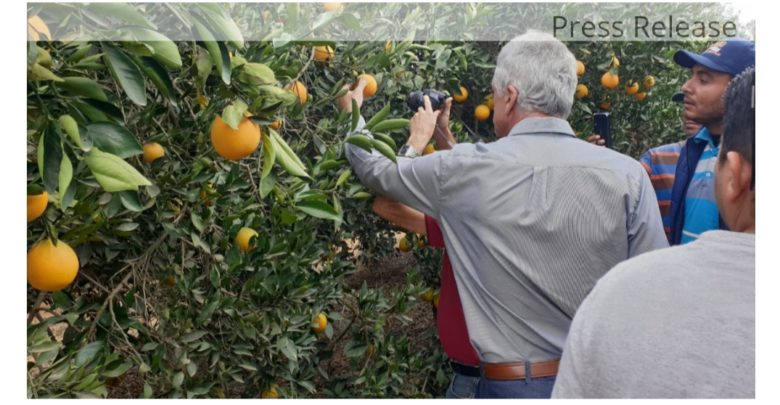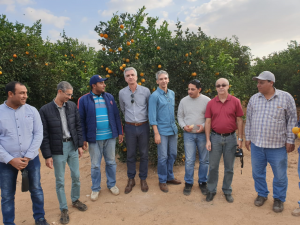Brazil about to greenlight citrus imports from Egypt
According to Brazil’s agricultural attaché to Cairo, Cesar Simas Teles, the technical stage of proceedings has been completed.

Proceedings are at an advanced stage for Egypt to begin supplying citrus fruits to Brazil. According to the agricultural attaché with the Embassy of Brazil in Cairo, Cesar Simas Teles, publication on Brazil’s Federal Gazette of food safety requirements agreed upon between the countries is the only step pending.
Egypt is planning to sell orange, tangerine and lime/lemon to Brazil. As per the Mercosur-Egypt free trade agreement in effect since 2017, a 75% tax break is already in place for citrus from Egypt. The current 2.5% charge on Egyptian citrus fruits will become void by September 2020.
Imports of oranges to Brazil came out to 30,655 tons and USD 27.79 million last year. Lime and lemon imports were 4,024 tons and USD 4.04 million. For Teles, the relevance of this step resides in what it represents, rather than on market size. “This is important first and foremost because Brazil is the first country in the Americas to allow citrus from Egypt into its market,” he told ANBA.
The lead-up to this saw back-and-forth delegation trips and technical missions between Brazil’s Ministry of Agriculture, Livestock and Supply and Egypt’s Ministry of Agriculture and Land Recovery. Pictured are fiscal auditors from the Brazilian Ministry’s Plant Safety Department on a technical visit in Egypt, which lasted from November 30 to December 4, 2019.
Teles believes that Brazil and Egypt are in particularly good standing may have played a role in the developments. “Brazil’s government recently got wind of the news that 42 meat exporting facilities in the country got the green light from Egypt’s government, so this is a good time for Brazil to allow in citrus fruit from Egypt. The technical aspects are taken care of. All we need now is the publication, but we can’t be sure when that will come because of the pandemic,” the attaché explained.
Multiple organizations and entities in Brazil and Egypt alike, among them the Egyptian Commercial Office in São Paulo, have been working on product import authorizations ever since the Mercosur-Egypt agreement went into force. These authorizations hinge on the issuance of food safety certificates.
By the time this story was written, the Brazilian Ministry of Agriculture hadn’t disclosed the date of publication.






